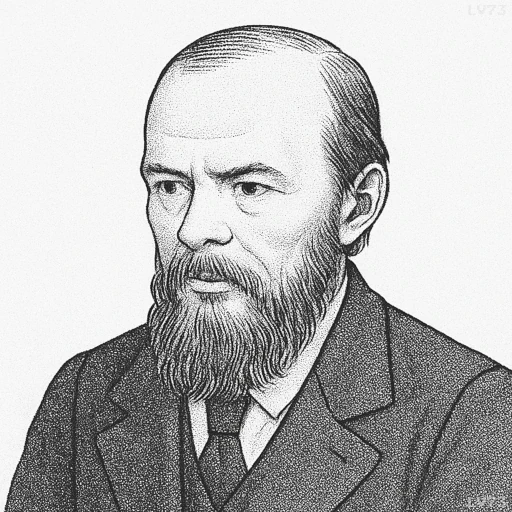“To live without Hope is to Cease to live.”

- November 11, 1821 – February 9, 1881
- Born in the Russian Empire
- Novelist, philosopher
table of contents
Quote
“To live without Hope is to Cease to live.”
Explanation
Dostoevsky’s assertion that “To live without Hope is to Cease to live” speaks to the vital importance of hope in the human experience. Hope, in this context, is not simply a wishful desire for future improvement, but a fundamental force that sustains individuals through suffering, despair, and even the most challenging circumstances. Dostoevsky, who explored the depths of human despair in works like The Brothers Karamazov and Notes from Underground, believed that without hope, life loses its meaning and direction, and individuals can fall into a state of existential paralysis. Hope is what propels people forward, even in the face of overwhelming odds, and it is what makes life worth living.
The statement also reflects Dostoevsky’s Christian existentialism, where faith and hope are crucial in overcoming the darkness of the human condition. For Dostoevsky, life was often marked by suffering, moral conflict, and the search for meaning. However, he believed that even in the most dire situations, hope—whether in God, redemption, or personal transformation—could provide the strength to endure. This perspective contrasts with nihilism or the belief that life is inherently meaningless. In the context of 19th-century Russia, where societal upheavals and moral questioning were rampant, the idea of hope offered a spiritual anchor in the midst of uncertainty.
In contemporary society, this quote holds powerful relevance, especially in an age where mental health issues, existential crises, and the loss of purpose are widespread. For many, the modern world can feel overwhelming, and the constant pursuit of material success or social validation may leave individuals feeling empty. Without hope—whether in the form of personal goals, relationships, or broader ideals—people may experience a profound sense of meaninglessness. In such times, hope can be seen as essential for survival, as it gives people something to strive for and believe in. Whether it’s the hope for personal growth, social change, or even just the belief that things can improve, hope is what keeps individuals moving forward, preventing them from succumbing to despair.
Would you like to share your impressions or related stories about this quote in the comments section?

